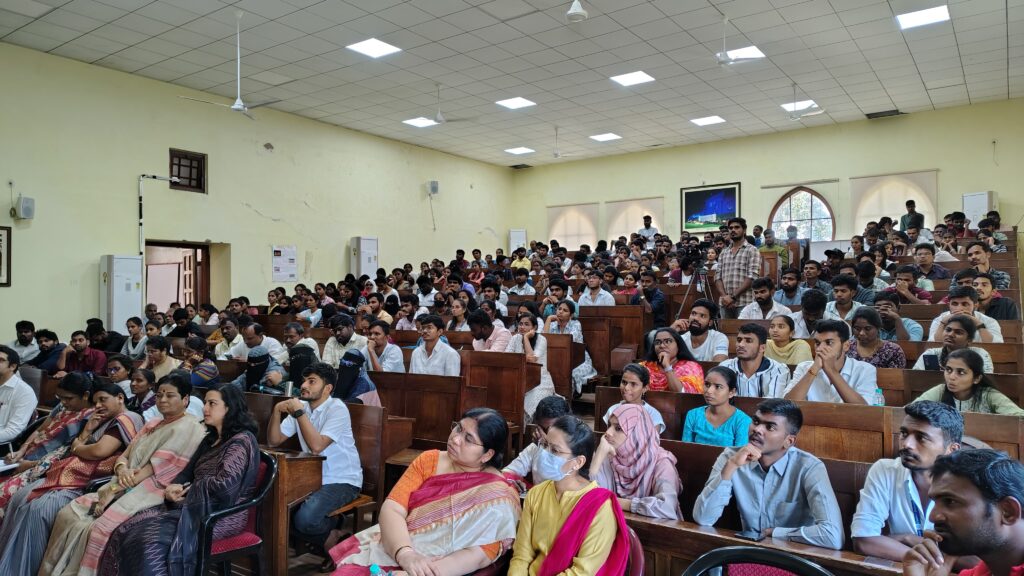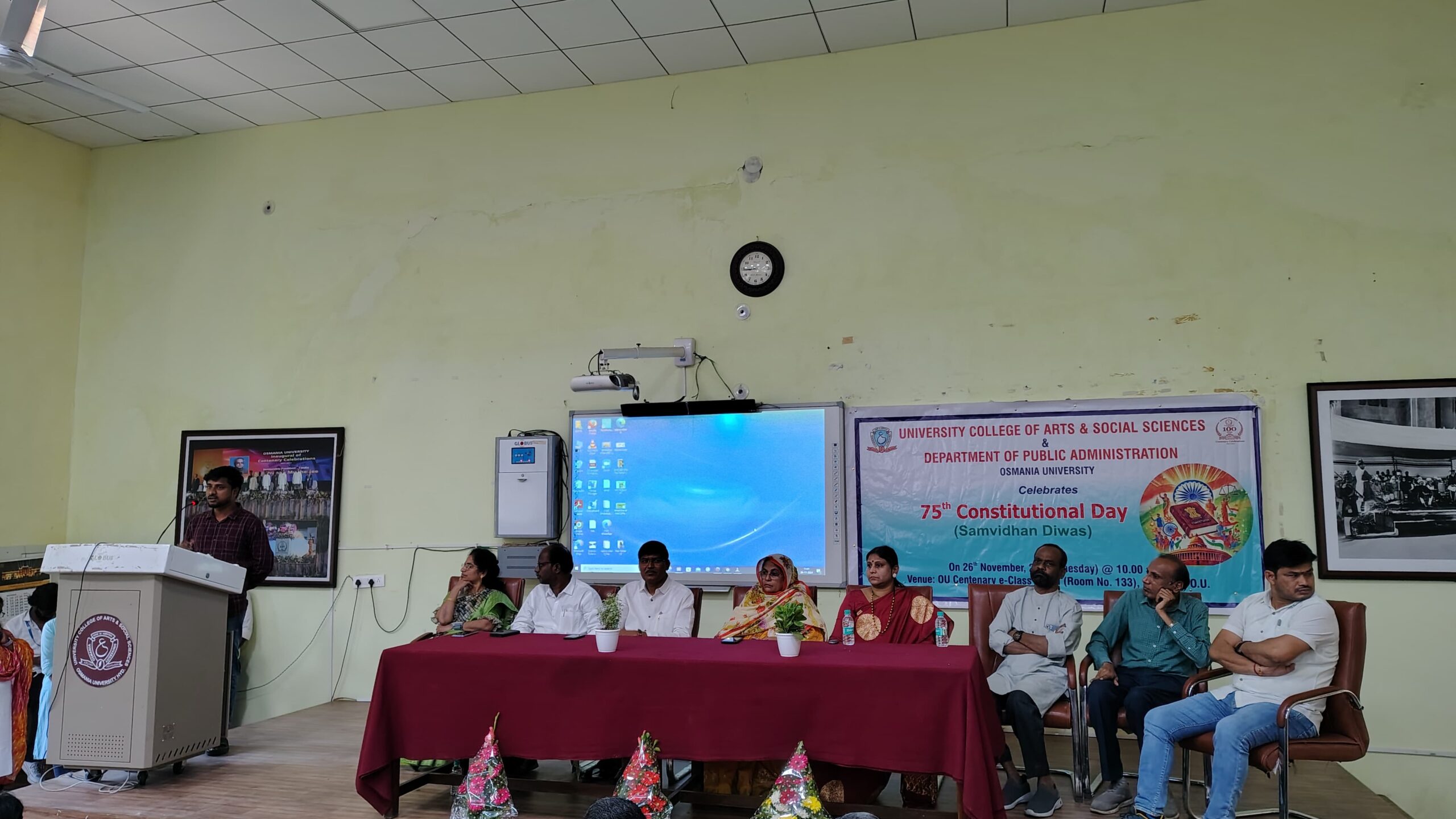Origins of the Constitution, efforts of Constituent Assembly, need for reaffirming core values, and Dr. B.R. Ambedkar’s legacy came up for discussion.
H. Mallikarjun (Sem. I)
Patriotic fervour prevailed in the University College of Arts and Social Sciences as students and faculty celebrated 75th Constitution Day on 26th November.
The programme was organised by students of the Public Administration to underline the need for understanding the Indian constitution not only as a codified law document but as a living force guiding its citizens to peace and excellence, and resolved to ensure its implementation and condemn its misuse.
Prof. C. Kaseem, the newly appointed Principal of Arts College, spoke at the event, attended by senior professors and administrators of the college and headlined by noted poet ‘Praja Kavi’ Jayaraj.
After garlanding a portrait of Dr. Ambedkar, the speakers along with the audience took a pledge by reading the Preamble to the Constitution. A flute performance by a first-year student was followed by a video about historic events that led to formation of the Constituent Assembly and the Drafting Committee.
Dr. Konda Nageswara Rao, from the Department of English, hailed the convergence of divergent opinions in the Constituent Assembly in the preparation of the rough draft of the Constitution. He recalled the work of the seven-member Drafting Commitee that shaped the document into its current form. Tracing the origins of a charter of rights back to 13th century Europe, he said the idea of a constituent assembly was taken from France and talked about the sheer will and commitment exhibited by the Assembly for over three years to draft the constitution.
Dr. Ram Shepherd Bheenaveni, Vice Principal, UCASS, opined that people in the country cannot imagine life without the Constitution, which was a supreme document that eliminated hierarchies prescribed in ancient scriptures around the world. He highlighted the dangers that anarchic capitalism posed to constitutional bodies, and added that action was required at this critical juncture.

Mallesh, an MA Public Administration student, attributed the absence of the words ‘socialist’ and ‘secular’ in the Preamble at the time of the adoption of the Constitution to possible ambiguities that may have arisen, and claimed that Ambedkar hinted about these ideals in other parts of the Constitution for future generations to work on.
The role of the Constitution as a treatise for personal development was pointed out by Dr. P. Swathi, Head of Psychology department. She said many things would fall into place if each individual pursues their fundamental duties with integrity.
Another student, Ankith, said that the promised shared values of justice, equality, liberty and fraternity form the soul of the Constitution and the country.
‘Praja Kavi’ Jayaraj described the Constitution as a book written with love, defining love as listening to others problems and empathising with them. “Those who believe in democracy benefit the most from Constitution,” he said, narrating anecdotes to show how it changed forever the way people lived. He told students that Ambedkarism embraced him in his quest for humanism, and on the request of students, performed a song that he wrote about Dr. B.R. Ambedkar’s life, contributions and legacy.
Prof. Kaseem explained the significance of the Preamble as an embodiment of the multitude of values and diverse provisions given in the Constitution. He said that the Constitution was not just a guide for future citizens but also a tribute to great souls who sacrificed themselves for India’s freedom, and that the flesh and blood put in by Ambedkar for three whole years is a testament to this tribute. He praised the Constitution for its impact on education and added that women and people who were once denied education are now studying and pursuing illustrious careers in Arts College.
Correlating fundamental duties to responsibilities of the stakeholders of the College, he suggested that both teachers and students should perform their duties, the former in imparting quality education and the latter in receiving it with diligent effort.
On a lighter note, he lauded a student of Public Administration, Sathvika, for confidently hosting the entire program while terming public speaking as a highly valued art, and commended other students for planning and setting the stage for a successful event, which was also attended by Dean of the Faculty of Arts, Prof. Syeda Talath Sultana and Prof. B. Lavanya, Head of the Department of History.
* * *
